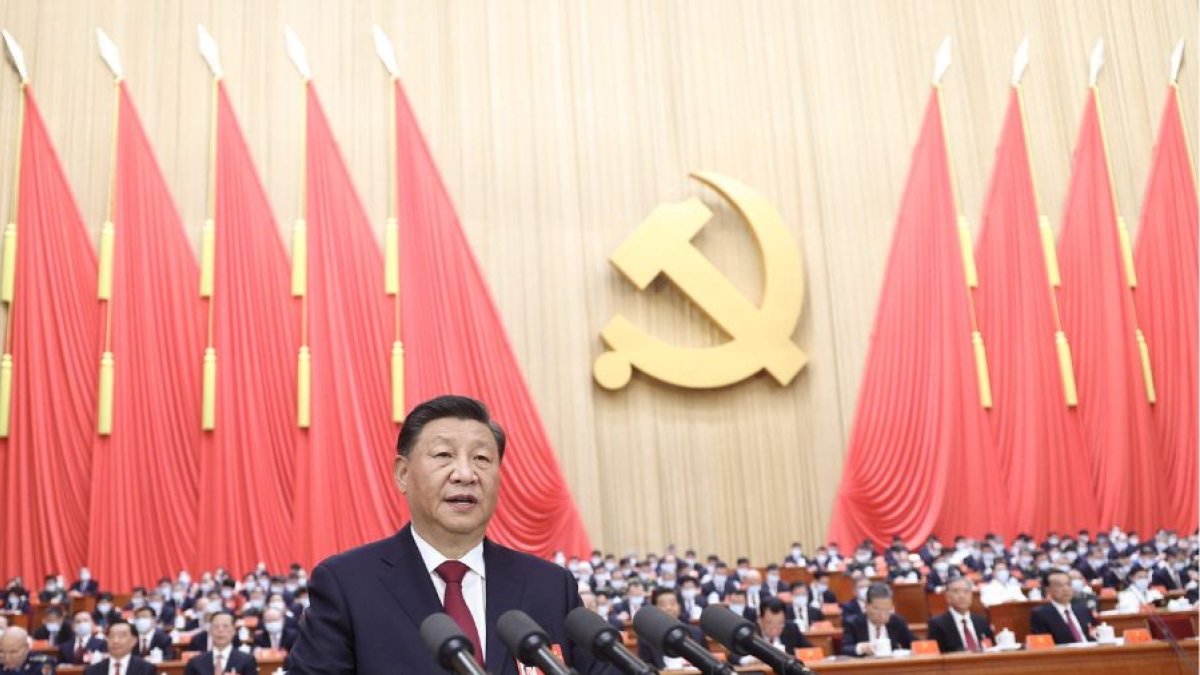Xi Jinping threatens to use force to reunite China and Taiwan
The president of the Chinese Communist Party will be the first leader since Mao to exceed two terms in power.

Cordon Press
Xi Jinping is about to become president of the People's Republic of China for the third consecutive term. He will be the first man, since the death of Mao, to exceed ten years in power in the Asian country. In his opening speech at the 20th General Congress of the Chinese Communist Party, he made his policy clear: to increase national military might, maintain the Covid Zero strategy and end poverty. And, of course, reunify China with Taiwan... even by force.
After the experience of Mao's very long dictatorship, the leaders wanted to prevent such a thing from happening again. Mao's successors respected this rule... until now. Xi Jinping's break with the rule limiting a president's term in office to two terms in China is not a recent development. Already in 2018, at the beginning of his second five-year term at the helm of the Asian giant, the leader began to lay the foundations for his continuity.
"A difficult era for China and for the World."
Jinping's re-election, The Washington Post reports in an editorial, "portends a difficult era for China and for the world." His continuity in power, for this newspaper and numerous experts in international relations, "would confirm that national aggrandizement and dictatorship, not global cooperation and human rights, are its lodestars".
Something that Jinping himself confirmed in his speech during the opening ceremony of the Congress. "China has taken a clear stance against hegemonism and power politics" and has "never wavered" in its opposition to unilateralism and "bullying," he said. A reference to the current world order, led by the United States, which Beijing aspires to change.
Achieving "a world-class army".
To this end, he announced that over the next five years, China will pay special attention to "high quality education" and innovation to "renew the growth" of the national economy. In addition, the Asian country will "acelerate efforts to achieve greater sel- sufficiency in science and technology," he said.
But above all, Xi pledged to elevate the People's Liberation Army (PLA) to a "world-class army." "We will work faster to modernize military theory, personnel and weapons," Xi said, according to The Associated Press. "We will enhance the military’s strategic capabilities." to improve its "ability to win."
"Provocations" in Taiwan
In this warmongering climate, Xi referred to the visit of the Speaker of the House of Representatives, Nancy Pelosi, to Taiwan last month, which he called a "provocation".
Zero Covid and the end of poverty
Without a hint of self-criticism, Xi again boasted about his Covid Zero policy, which is being strongly criticized by the population for the personal and economic cost it is entailing. Even, as CNN reported, last Thursday there was a "rare protest" against the rule. Nothing to make the president hesitate, who insisted on the goodness of the measure: "In responding to the sudden outbreak of Covid-19, we prioritize people and their lives above all else, and we tenaciously pursue the dynamic policy of Zero Covid to launch an all-out people's war against the virus."
Far from accepting the damage that this strategy is doing to one of his great promises, the elimination of poverty, Xi once again ratified it. In this case, he promised that the weapon to end this scourge would be job creation and "common prosperity" policies.

























